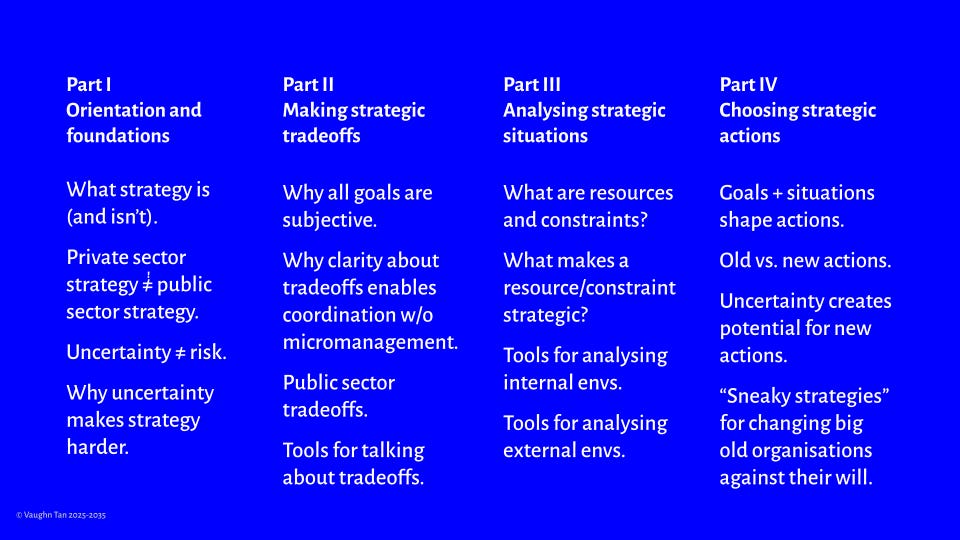Public strategy (wk 23/25)
A symphony of freshness; not-so-monolithic problems; public sector strategy; now-ish; Old Skool methods; sauna talk; signs.
Hello friends,
I’m running on fumes after a spate of overscheduling, which is why I skipped last week. Also, I seem to have gotten the week numbering wrong — now fixed.
Writing
I’ve been working on putting together a strategy course that is specifically designed for the public sector and public servants: Not short-termist, not profit-oriented, not efficiency-obsessed, not conflated with planning, focused on tradeoffs. Gave a talk about the logic and motivations underpinning the course last week, and wrote it up this week.
👉 A course on public strategy.
Public sector problems look big, monolithic, and unsolvable. But they’re more tractable when broken down into five types of problems: Coordination, strategy, category, capability, and tradeoff. You won’t be surprised to hear that tradeoffs (to me) are foundational and unblock progress on the other types of problems.
👉 Decomposable strategy problems.
👉 Unpacking Boris: A strategic tradeoffs workshop.
And I finally got round to updating what I’ve been up to recently: Fighting procurement bureaucracy, running emergent strategy workshops and convenings, visiting an old city, a temporary city, and a fabled research centre.
👉 Now-ish (5 June, 2025).
Elsewhere
At Edge Esmeralda, I happened to be staying where the Edge City team had installed their sauna and cold plunge facilities. Interesting conversations happen when too many people are packed into a dimly lit, overheated space. On successive nights and mornings: The economics of big cities and small farms; whether living forever makes one boring or makes the people around one boring (or both); Iain M. Banks, the Culture, and the best case scenario of benign AGI; Walter Miller and the fragility of knowledge; the categorical imperative; cozies and other Quality Trash; achieving better sleep on floors/tatami/metal-free wool mattresses/ceramic; contract assassins; the unintuitive case of population wheats; what happens to old AI computational hardware; and how to defeat a sauna thermostat.
The nice thing about sauna conversation is that “being done with the heat” is always a viable escape vector.
See you next week for real,
VT








